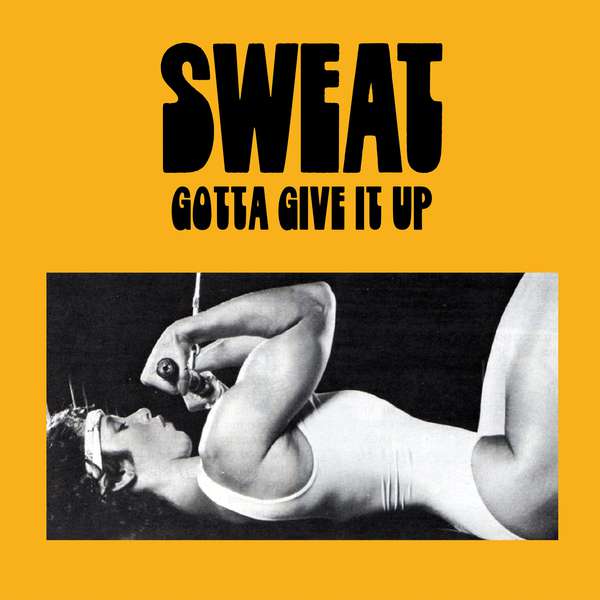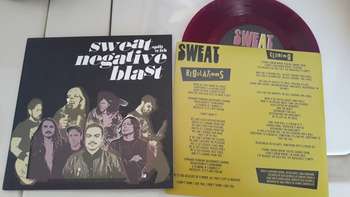I’ve had a range of thoughts about this record as I’ve played it on repeat in recent weeks. At first it didn’t really hit me -- it felt too repetitive and didn’t really jump out from the pack. But that changed as I kept coming back. While circle pit hardcore is well established at this point, Sweat’s Gotta Give It Up hits me in new ways. On a really general level, it falls somewhere between the catchiness of Bridge Nine classics and more pummeling, underground hardcore of the late ‘90s.
There’s an intangible energy that pulses through this record. It’s infectious, if saying that isn’t in bad taste nowadays. The same hooks that sound too similar on first listen…They take hold, set in in place, and, well, hook you. When it needs a pick-me-up, throw in some gang vocals and then a bridge. It’s not new, nevertheless it’s still refreshing because the band’s heart and message are so clear. The production is also perfect to get that across, with the raw backing vocals giving a live kind of sound.
“Hit & Run” is a stomper to start things off, then the tempo increases into the call and response “Machismo.” This song isn’t just aggression you can dance to; it’s a statement song. Vocalist Tuna Tardugno mostly screams and belts the vitriol but offers just enough melody to make the punches land. “Life & Death Complex” is a pass-the-mic chant-along that ultimately picks up speed as it goes. Like most albums of this style, it loses steam now and then, especially in the middle. “New Kind of Dag” offers some chord changeups that shift the tone, then it picks up again toward the end with buzzsaw guitars in “Art of Posing” and then some slow-to-fast tempo changes in the pent-up closing track: “Poor Execution.” I guess I should probably mention that members, including Tardugno, also play/have played in Graf Orlock, Dangers, Dogteeth, and Ghostlimb.
The lyrics are direct and often first person, written in full statement form as compared to rhyming couplets. It’s brutal honesty put into song. It’s political punk, but through a human filter that’s focused on emotions instead of messaging. What I’m saying is that this record is about feelings. And not the happy kind. While I mentioned hardcore of 10-20 years ago in the opening paragraph, this is the modern take on that. It has all the fury and the passion, but it’s more personal and emotive without getting cute about it. Gotta Give It Up feels like a product of the times: furious, angry and, instead of asking questions, it’s telling us the answer that’s right in front of our faces.





